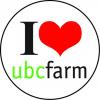News: Looking to Biology for the Answer to Food Waste

Looking to Biology for the Answer to Food Waste
May 20th 2011
By Kristi Choi
The massive amount of food required to feed the planet’s 6.7 billion people results in the production of food waste on an equally grand scale. Food waste represents 19% of waste dumped in landfills in countries such as England and the United States [1]. Once in landfills, food waste ends up rotting and producing methane. The social, economic, and environmental implications are harmful and a subject that needs more attention.
To tackle the issue on global food waste, Dr. Craig Sheppard- one of the leading researchers on insect-bio conversion processes, along with his colleague Dr. Larry Newton, have developed an innovative production system called “OVRsol”, to convert waste into a high protein, high energy meal.
From 1977 to 2004, Dr. Craig Sheppard held the position as assistant professor and associate professor at the University of Georgia’s Department of Entomology. There, he began studying the Black Soldier Fly, and how to use this insect in the bioconversion process from low value organics to high value protein meal. About fifteen years ago was when Allan Finney and Dr. Sheppard first met and discussed the research he was doing. The two began discussing manure waste management which led them to giving presentations on the topic and eventually to establishing the company, Organic Value Recovery Solutions (OVRsol) LLC. Altogether this has been an ongoing research and build process spanning over 30 years, explains Dr. Sheppard.
OVRsol can work with:
· Waste foods including out of date or off-grade wastes
· Manufacturing residuals
· Fish offal
· Restaurant Wastes
· Meat and dairy wastes
· Manures- including swine, poultry, dairy and others
· Brewer’s Grains
· Palm Kernel Meal
· Other organic wastes
The OVRsol process begins with the Black Soldier Fly larvae when they consume “nutrients in the form of waste foods, manures, grains, meat, dairy, ketchup, and other organic materials”. This particular insect has the ability to convert most organic wastes or low value commodities that would otherwise cause health and pest issues into insect bio mass.
The Black Soldier Fly larva is especially good for this process because it is capable of eating twice its body weight per day, and is in fact far more efficient at converting feed into protein than livestock, such as cattle or poultry.
Additionally, since they are high in protein and filled with vitamins, amino acids, and essential fatty acids, the larvae are ideal in animal and fish feed formulations. If a certain waste stream is not ideally suited, adding formulations to tailor the feed requirements for an animal is a possibility as well. The OVRsol process also produces a “by-product” soil amendment that can be sold for gardening, composting, or soil remediation.
The OVRsol process is 100% efficient, very ‘clean’, and sustainable as it eliminates odor as well as pest species such as house flies which are often abundant near waste. As a whole, the process replicates a natural system where all the nutrients are utilized and not wasted as they are in many modern food production facilities and processes.
As of now, Organic Value Recovery Solutions LLC is in the process of looking for funding to turn the still small scale, development into an intensive large scale commercial venture. OVRsol are currently in negotiations with some substantial companies towards this end.
“The future is now. We have and we will continue to have problems with local nutrients overload. This is a brand new industry and game changing technology”, says Allan Finney.
1 http://well.blogs.nytimes.com/2010/11/01/from-farm-to-fridge-to-garbage-can/?ref=science
2 http://www.organicvaluerecovery.com/index.htm
Videos
Full Interview:http://www.organicvaluerecovery.com/our_process/our_process_interview_craig_sheppard.htm
Short Interview:
http://www.youtube.com/watch?v=oFf1eH8qAbc
Category:


































